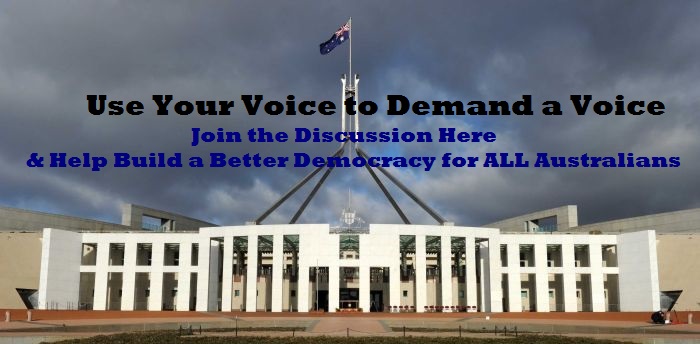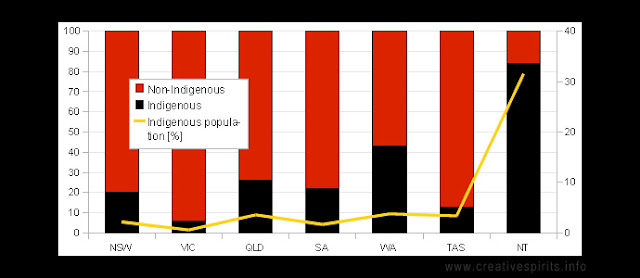This makes me sad,
not mad
Most of us know someone who says we should help Australians before
we worry about refugees. Quite a few people I love feel this way. I don’t love
them because they are relatives – they aren’t – I love them because they are
good, decent people who would give the shirt off their backs to anyone they
felt deserved or needed it.
Truth is, most of us know someone who has been let down or
even shat on by a succession of Australian governments: someone aged, someone
young, someone in need of surgery, someone struggling to deal with several young
handicapped children, someone in need of mental health care, or someone in
their 70s looking after young grandchildren.
Truth is, most of us also know of somebody who is rorting
the system. [Bronwyn Bishop would be a name that springs readily to mind.]
We hear, daily, blatant bullshit from politicians. That we
already take a very high number of refugees. That baby boomers with no super
have an unwarranted sense of entitlement. The number of jobs increased this
quarter. The other party are immoral and we are perfect. ad nauseum
Bare-faced lies.
Whom should we trust? The Murdoch media? Andrew Bolt? Reality TV Show contestants?
Our own eyes, when we see angry refugees rioting and destroying
our property? Yes, it’s biased and selective and only on the news because it’s
exceptional, but accept it folks, that’s exactly what people are seeing.
And it’s
about all people are seeing or hearing because no one with anything decent to
say can say it in context in a 30 second sound-bite.
The only people who benefit from what governments do are the
already-haves. Not the people who want to put Australians first, nor the people who
want to help refugees, nor refugees themselves.
The only people who benefit from what governments do are the
political bosses, who take from Australians, and deflect attention from their
neglect by blaming those who are even more helpless than the Australians they are robbing.
They benefit by dividing us and turning us against each
other and against other ‘outsiders’.
IT MAKES ME SAD TO READ SO MANY ABUSIVE AND PERSONAL AND TROLL
LIKE COMMENTS AND ACCUSATIONS OF RACISM, UNDER POSTS AND ARTICLES ABOUT SYRIA.
CAN WE JUST STOP WITH THE VENOM AND GET ON WITH ACTING LIKE
THE SANE, REASONABLE ADULTS WE WISH POLITICIANS WERE?
We need to stop fighting with each other, and start fighting
together.
This is good work, but what next? How can we make things happen without having to say 'you don't speak for me' all the time. Isn't this supposed to be a democracy?
We need a new, democratic constitution. One that gives every
voter a direct say in who will lead this country. One that balances power
between the Parliament, a President, the courts AND the people.
We need to make each election victory a written contract,
where every player is clear about what their job is, and where the lines are
that can’t be crossed; A written contract built around the rights of citizens,
and the obligations of government – not the reverse.
The stories are already trickling through. People not from
Syria pretending to be from Syria so they can get to Germany. Easy to see where
this is heading.
When all the tricks in the book are set out by our
Government and in the media – as they invariably will be, however few people
are trying them – they will all be things that could have been avoided by a
better constitution. And Australians will be arguing against and blaming each
other again, instead of putting the blame where it rightly belongs – with current
and recent governments.
Here’s what the discussion draft suggests would be fairer
all round:
1.
Make decisions about bombing the crap out of
other people’s homes more democratic, and subject to some restraint [with respect to warfare, and an Emergency Council, the discussion draft says
37 – Australian
Military Presence on Foreign Soil
a)
Where 36 Sub Section a) does not apply, no
commitment to Military Action or Australian Military Presence on foreign soil shall
be made unless;
1.
The proposed Military Action or Presence is in
support of a resolution of the UN Security Council; or
2.
The proposed Military Action or Presence is in
support of a UN sponsored peace-keeping force; or
3.
The proposed Military Action or Presence is
approved by a majority of member nations of the UN; or
4.
An ally of Australia has requested Australian
assistance with Military Action or Presence in a country other than Australia;
b)
A majority of all members of the full Emergency
Council must vote to call upon the Parliament to approve such Military Action
or Presence; and
c)
Approval must be granted by a Joint Sitting of both
Houses of Parliament.
2.
Minimum standards of treatment for ALL
Australians - s101 of the discussion draft covers rights of Australian citizens
3.
Support business to create jobs for Australians,
not as an end in itself - sections 83-100 of the discussion draft set out the government contract with the people
4.
Government subcontracting of services [such as
running detention centres] will no longer be a barrier to duty of care. Transparency
and audits should meet the same standard as if the services were provided by
public servants directly employed by the government - the discussion draft at s95 d)
As no contract can extinguish a duty of care,
private enterprises contracted to provide goods or services shall be subject to
the same standards, audits and supervision as if the provider were a department
of the Public Service
Displaced Persons, Asylum Seekers and Refugees
99 – Displaced
Persons, Asylum Seekers and Refugees
Australian Governments shall
a)
Acting for the benefit of Australians no less
than non-Australians and without renouncing national sovereignty, demonstrate
that Australia is
1.
a good global citizen,
2.
intolerant of human trafficking, debt bondage,
sweated child labour or genocide
b)
With respect to numbers of Internally Displaced
Persons or Asylum Seekers worldwide; provide assistance to the UN, its Agent or
Successor with
1.
the management of IDP camps and refugee camps
2.
promoting reasonable standards of refugee
protection and assistance close to areas of conflict
c)
in determining humanitarian intake quotas have
regard for
1.
existing infrastructure, social cohesion and
Australia’s capacity to absorb immigrants
2.
numbers living illegally in unprotected
countries with no means to apply for asylum
3.
numbers living in refugee camps around the globe
who have been stateless for an extended length of time
4.
the character of individuals who might fill that
quota
So here’s what we should be getting from any decent
government
·
Stop creating refugees in the first place
·
Give people a place near their home where they
can apply for asylum
·
Give them somewhere safe and productive to stay near
their home,
·
Help more with processing and providing
·
Take a reasonable share of the world’s refugees
as migrants
·
Be sure and include some who have been stateless
for decades
AND, quite reasonably
·
We are entitled to make sure they will be people
who want to fit in
Jobs and Refugees and the Politics of Resentment
Naomi Klein warned us in 1999. Sociologists and economists
were talking about it in the 1980s.
Corporatism breeds unemployment – and it destroys democracy.
Not capitalism, per se, but corporatism.
When people feel uncertain about employment, they can get
grumpy and feel nervous.
The minimum wage in the U.S. is so low that companies like
Walmart prosper –by telling their workers to get government assistance to top
up their wages!
U.S. Senator Warren said “no one should work full time and
live in poverty” – and this is taken as a radical way of thinking!
Personally I don’t think any Australian should be unemployed when we don't even have tram conductors, or staff in Public Service Offices. Our jobs should not have been lost in the first place. And
there should be plenty of jobs people could do.
If you’ve stuck with me this far, you are probably not in
the mood for a rant about the economy, but here’s the thing;
JOBS.
People are not afraid of refugees because refugees might be different – people are afraid because
refugees will be competing for jobs or, worse yet, competing for dwindling government
assistance, and competing for basic things like food, shelter, and health care.
It shouldn’t, and needn’t, be like this.
You can read the text of the draft here or PM me through the facebook page and I will happily email you a more readable PDF. The draft DOES need everybody's input, it is just designed to start discussions.
You can read the text of the draft here or PM me through the facebook page and I will happily email you a more readable PDF. The draft DOES need everybody's input, it is just designed to start discussions.
Please join the discussion if you agree Australia needs a new and more democratic constitution. If you don't want to use blogger, you can discuss the idea via facebook.















